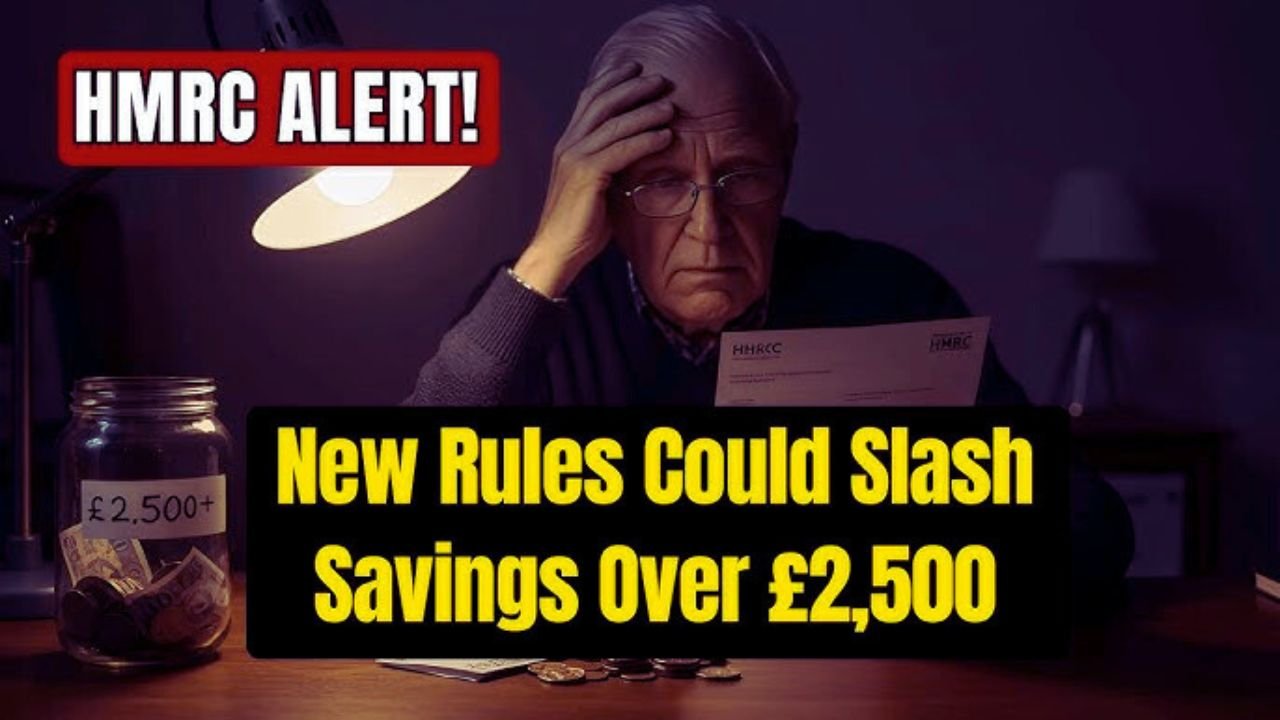New rules from HM Revenue and Customs (HMRC) are shaking up how people in the UK save their money. Starting this year, anyone with savings over £2,500 could lose a chunk of their earnings due to tighter tax changes. These rules target interest earned on savings accounts, ISAs, and other investments. With living costs already high, this news has many worried about keeping their hard-earned cash safe. Here’s a simple breakdown of what’s happening and how it might affect you.
What Are the New HMRC Rules?
HMRC has changed how it taxes savings interest to bring in more revenue. In the past, you could earn up to £1,000 in interest tax-free if you were a basic-rate taxpayer, or £500 if you paid higher-rate tax. This was called the Personal Savings Allowance (PSA). Now, HMRC is lowering these limits for anyone with total savings above £2,500. If your savings generate interest, you’ll owe tax on more of it than before. The goal is to close gaps where wealthier savers paid less tax, but regular folks with modest savings are feeling the pinch too.
Who Gets Hit by the Changes?
The new rules apply to anyone with savings in banks, building societies, or certain investments like bonds. If your total savings are over £2,500, including all accounts combined, HMRC will look at your interest earnings more closely. For example, if you have £10,000 in a savings account with a 3% interest rate, you earn £300 a year. Under the old rules, that might have been tax-free. Now, part of it could be taxed, depending on your income and tax band. Higher earners with big savings face the biggest hit, but even pensioners or part-time workers could lose out.
| Savings Amount | Old Tax-Free Allowance (Basic Rate) | New Tax-Free Allowance (Basic Rate) |
|---|---|---|
| £2,500 or less | £1,000 | £1,000 |
| £2,501–£10,000 | £1,000 | £750 |
| Over £10,000 | £1,000 | £500 |
Why Is This Happening Now?
HMRC says the changes help fund public services, like schools and hospitals, as the government needs more cash. With interest rates climbing, banks are paying better returns on savings, so more people are earning taxable interest. HMRC wants to make sure everyone pays their fair share, but critics argue it punishes savers who’ve done nothing wrong. The timing stings, as many are already struggling with energy bills and rising prices. Some worry this could discourage people from saving at all, which isn’t great for financial security.
How to Protect Your Savings
There are ways to soften the blow from these rules. First, check if your savings are in tax-free accounts like ISAs, where interest stays untaxed up to a yearly limit. Second, spread your money across accounts to keep interest low in each one. Third, talk to a financial advisor to see if other investments, like premium bonds, work better for you. Acting early can help you keep more of your money. Don’t just leave your savings sitting there, as banks report interest to HMRC automatically now.
What’s Next for Savers?
These changes are already in place, so check your savings accounts soon. Look at your total savings and the interest they’re earning. If you’re over the £2,500 mark, calculate how much tax you might owe. HMRC’s website has a calculator to help, or you can call their helpline for free advice. Many are frustrated, feeling like the government is dipping into their pockets. But with some planning, you can limit the damage. Keep an eye on your bank statements, and don’t let these new rules catch you off guard. Your savings deserve protection.
